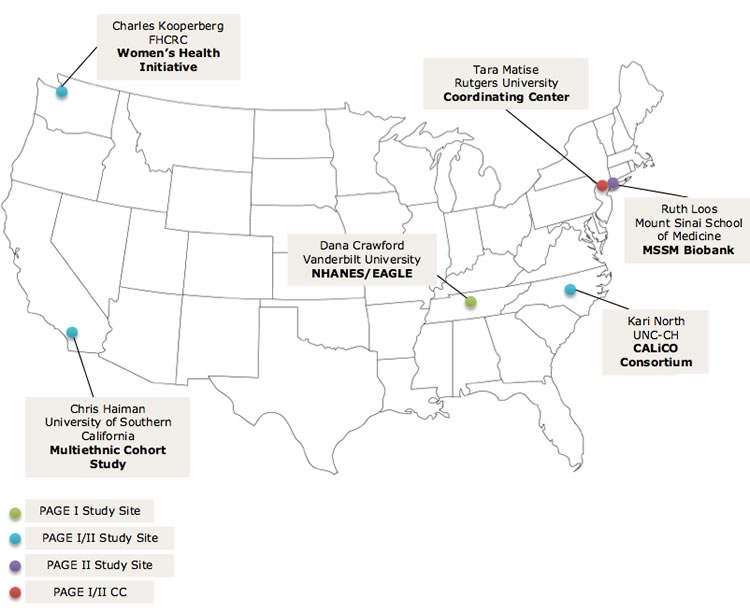The Steering Committee is the governing body for the consortium and is composed of the Principal Investigators from each institution and the NIH Project Scientist.Chair: Charles Kooperberg, Ph.D., Fred Hutchinson Cancer Research Center
The External Scientific Panel provides input to the NHGRI Director about the progress and direction of the Network.
- Chair: Julie Buring, Sc.D., Harvard University
- Jonathan Haines, Ph.D., Case Western Reserve University
- Deborah Nickerson, Ph.D., University of Washington
- Christopher O'Donnell, M.D., National Heart, Lung, and Blood Institute, Harvard Medical School
- Gloria Petersen, Ph.D., Mayo Clinic
PAGE II Working Groups will address issues related to array design and logistics, clinically relevant variants, variant annotation, and specific traits (lipids, diabetes/obesity, CHD/ECG, cancer, hypertension/kidney, inflammation), SNP selection and quality control, and ethnicity and ancestryPAGE Standing Committees coordinate ongoing activities such as Publications and Presentations.
PAGE Project Groups perform cross-study analyses and write manuscripts. PAGE I Project Groups focused on cancer, cardiovascular disease, lipids, obesity, type 2 diabetes, menopause/menarche, the Metabochip and phenotype-wide association study (PheWAS). PAGE II Project Groups are TBD.


